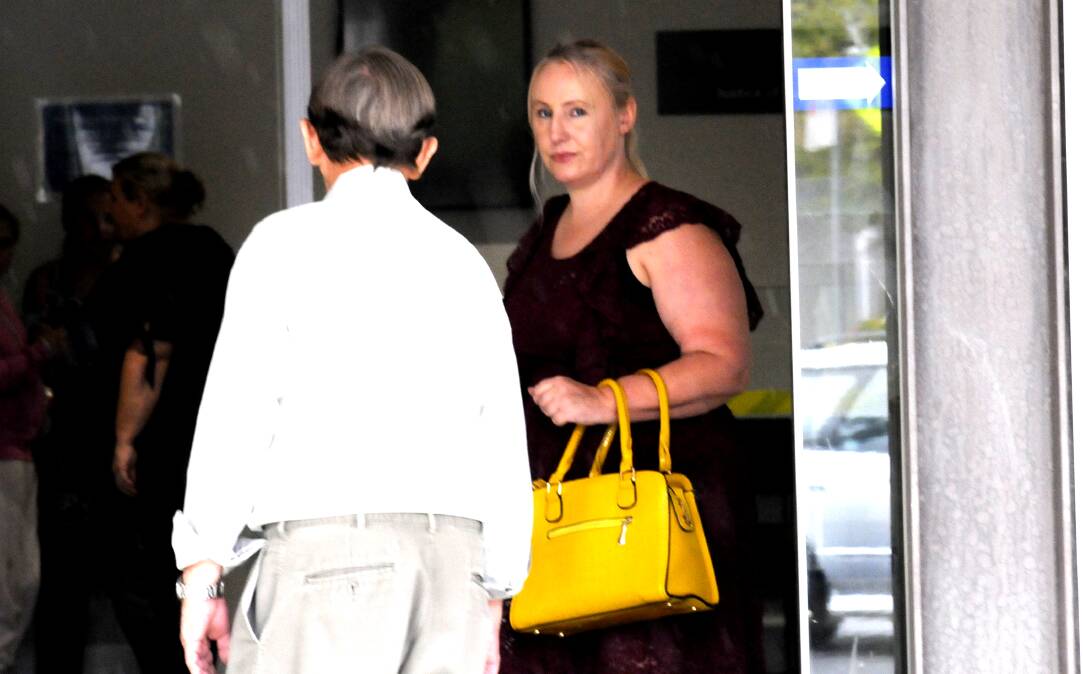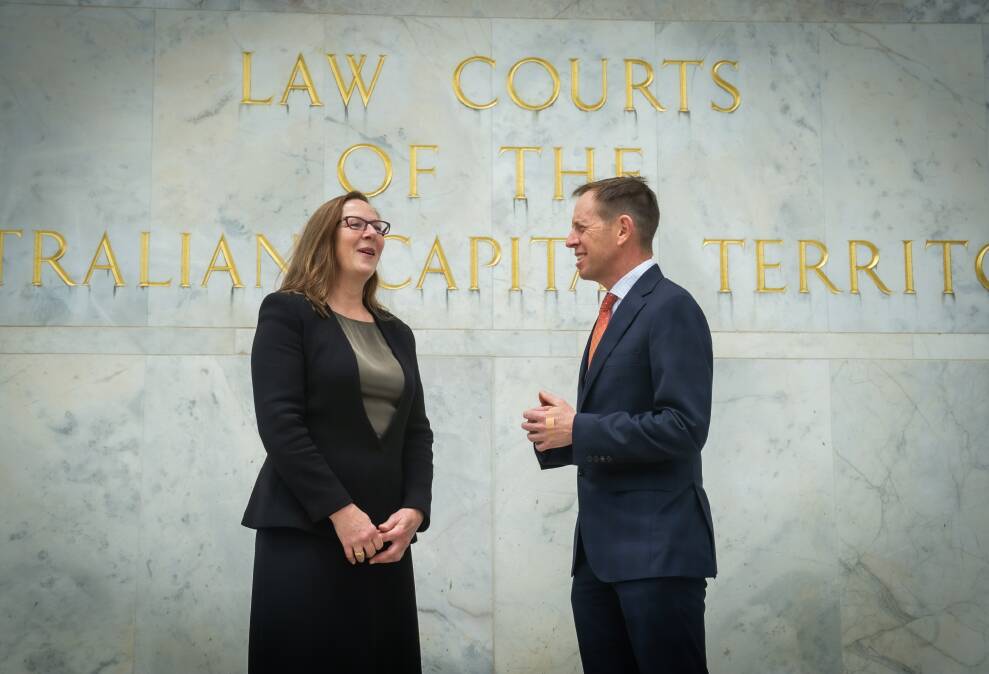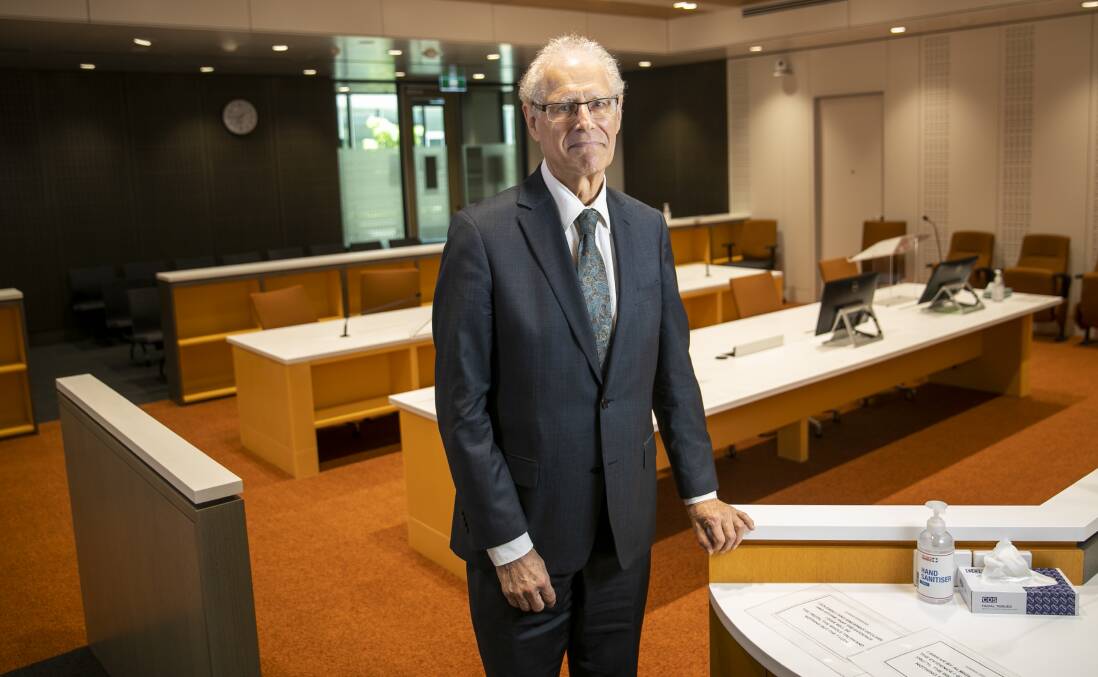
The irony of the revolving door at the front of the ACT courts would not be lost on many.
After all, nearly 80 per cent of the prisoners those courts send to Canberra's jail have been locked up before, according to the latest Australian Bureau of Statistics data.
In desperate need of a circuit-breaker, ACT Supreme Court judges were given the power in late 2019 to suspend jail sentences and impose drug and alcohol treatment orders for certain offenders with addiction issues.
The option is being hailed as a success nearly three years on, with a recent independent review of the drug and alcohol sentencing list scheme finding it effectively pays for itself and saves money taxpayers would otherwise have forked out to have people incarcerated.
Treatment orders will not work for everyone, and 15 of the 56 people given the chance to avoid time behind bars have had theirs cancelled because of non-compliance.
With the scheme's progress slowed by the COVID-19 pandemic and an increase in the average length of treatment orders, which now generally take 21 months, most offenders are still completing their programs.

But for the eight offenders who have graduated so far, the treatment orders ACT Attorney-General Shane Rattenbury calls "transformational" have proven to be just that.
None of the eight have reoffended, and the speeches acting Justice Richard Refshauge has given at their respective graduations offer a window into how each has managed to leave the revolving door of crime behind.
Inaugural graduate Crystal Parker had a $150-a-day heroin habit when she and daughter Jasmin committed two knifepoint robberies, and attempted another, in 2019.
She completed a three-phase program to address the drug dependency behind her crimes, and also used time she would have otherwise spent in custody to learn cooking at the Canberra Institute of Technology.
Katherine Skupien, who aided and abetted the infliction of grievous bodily harm, was battling to regain the custody of her children when acting Justice Refshauge began supervising her progress on a treatment order.
When she graduated in March 2021, her children were at the ceremony to celebrate her success with her and to provide ongoing motivation to steer clear of crime.
The scheme's first male graduate, Lochlan Hinder, was busted with a prohibited knife after stealing $8651 worth of jewellery.
Acting Justice Refshauge told Hinder's graduation the offender had failed at times to comply with treatment requirements, leading to some short stints in custody.
"You accepted that and got on with the job of working through the relevant issues," the judge told Hinder.
"Indeed, you came back with a renewed commitment, though you encountered some bumps."
Robert Bessant, a burglar indiscriminate in his targets, had a history of serious crime prior to turning his life around and volunteering with the Salvation Army in Braddon while completing his treatment order.
Graduating on the same day as Bessant was Dean Simonds, who caused $33,000 worth of damage to the Fyshwick Harvey Norman store in a ram-raiding.
Simonds had a lengthy criminal history, related largely to his drug use, but acting Justice Refshauge said his treatment program had helped him realise the superficial enjoyment of illicit substances came at the expense of more important things.
Alexander Ian Saunders went down the path of crime as a consequence of using unprescribed benzodiazepines, and committed aggravated burglaries.
He "threw himself into rehabilitation", acting Justice Refshauge said when Saunders graduated in March with plans to start a personal training business.
Car thief David James Peadon gave away his job because of his drug use, which culminated in "a substantial raid" on a Fyshwick auction yard.
Acting Justice Refshauge described Peadon's commitment to rehabilitation as "impressive", noting he had become a peer mentor while in a residential facility.

The most recent to complete a treatment order is Blair Keiran Pearson, who only graduated late last month.
Acting Justice Refshauge sentenced him over eight offences that were "mostly of violent behaviour".
Pearson was sanctioned in May with a period behind bars while on the "long and bumpy" road towards rehabilitation, along which he also gained employment.
The eight graduates' success in staying away from the criminal justice since treatment has prompted talk of the scheme being not only funded into the future but also expanded, with Mr Rattenbury saying he will present the "strong evidence" for both to his cabinet colleagues in a bid to allocate further funding.
The idea has support from members of the legal profession, including experienced barrister John Purnell SC, who hopes to see the scheme's capacity doubled.







